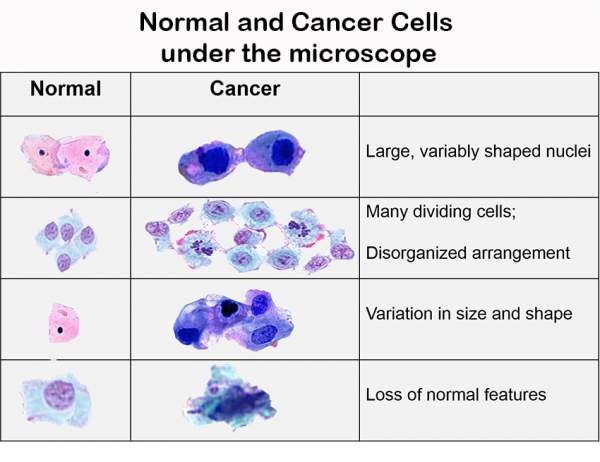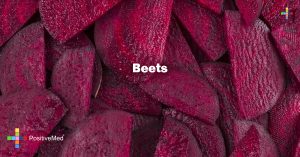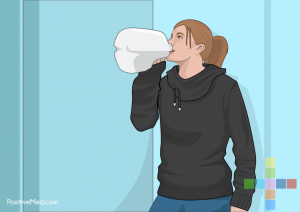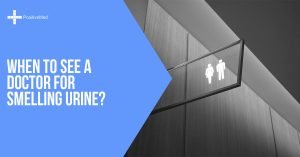Good News: You Probably Won’t Get Cancer
That is, if you have a healthy lifestyle, as many as 70% of known causes of cancers are avoidable and related to lifestyle. Try these novel strategies and your risk of cancer could dwindle even more:

1- Filter Your Tap Water. You’ll reduce your exposure to known or suspected carcinogens and hormone-disrupting chemicals. A report from the President’s Cancer Panel on how to reduce exposure to carcinogens suggests that home-filtered tap water is a safer bet than bottled water, whose quality often is not higher, and in some cases is worse, than that of municipal sources, according to a study by the Environmental Working Group. (Consumer Reports’ top picks for faucet-mounted filters: Culligan, Pur Vertical, and the Brita OPFF-100.) Store water in stainless steel or glass to avoid chemical contaminants such as BPA that can leach from plastic bottles.
Related article: GUESS WHICH BOTTLED WATER IS THE SAFEST? THE ANSWER MAY SHOCK YOU!
2- Avoid Smoking and Exposure to Smoke. Smoking is the most significant cancer risk factor that we can reduce. It is responsible for not only lung cancer, but many other types of cancer. One of the best ways to prevent cancer is to quit smoking or never start. As soon as you quit, and it’s never too late, your body starts to reap the benefits of being tobacco-free. Avoiding secondhand smoke is also a way to prevent cancer. Secondhand smoke is the smoke exhaled from a smoker or a lit cigarette, pipe, or cigar. This smoke contains more than 60 known carcinogens. These carcinogens interrupt normal cell development. This interference is what ignites cancer development.

3- Stop “Topping Off” Your Gas Tank. The EPA and the President’s Cancer Panel say that pumping one last squirt of gas into your car after the nozzle clicks off can spill fuel and foil the pump’s vapor recovery system, designed to keep toxic chemicals such as cancer-causing benzene out of the air, where they can come in contact with your skin or get into your lungs.

4- Eat Healthy (Or, At Least, Healthier). Make sure you’re getting lots of fruits and vegetables in your diet. Dark, leafy greens are especially good for you. You’ll also want whole grains, beans and other plant-based foods in your diet. High-fat foods and processed meats should be avoided; try to limit your intake of these foods as much as possible, but make sure you are getting enough protein in your diet. Meanwhile, drink lots of water and avoid sugary snacks and drinks.
Numerous studies show that a diet high in animal fat increases the risk for several types of cancer, particularly colon cancer. Red meat contains much more fat than poultry and fish, therefore reducing the amount of red meat in your diet may help prevent cancer. A diet high in fat is also a major cause of obesity, which is a risk factor for many types of cancer.
5- Avoid Unnecessary Radiation. The ionizing radiation used in many types of medical scans has been linked to cancer. That means higher radiation-emitting tests like CT scans should only be performed if they are absolutely necessary. According to Prevention.com, about one-third of CT scans may be unnecessary, so ask your doctor if there are any other tests – such as ultrasounds or MRIs – which could be used as a diagnostic tool for your condition. Fortunately, this doesn’t apply to certain cancer screening tests, like mammograms, as the radiation level is very low.
6. Avoid Air Fresheners. Though no direct links have been found, many artificially scented candles and air fresheners contain carcinogens. Instead of using these products, try cleaning up the source of a bad smell and use beeswax candles as an all-natural air freshener. You can also set out a bowl of white vinegar to help drive out bad smells.
7. Marinate Meat First. Processed, charred, and well-done meats can contain cancer-causing heterocyclic amines, which form when meat is seared at high temperatures, and polycyclic aromatic hydrocarbons, which get into food when it’s charcoal broiled. “The recommendation to cut down on grilled meat has really solid scientific evidence behind it,” says Cheryl Lyn Walker, PhD, a professor of carcinogenesis at the University of Texas M.D. Anderson Cancer Center. If you do grill, add rosemary and thyme to your favorite marinade and soak meat for at least an hour before cooking. The antioxidant-rich spices can cut HCAs by as much as 87%

8. Don’t Skip Your Caffeine Fix. Java lovers who drank 5 or more cups of caffeinated coffee a day had a 40% decreased risk of brain cancer, compared with people who drank the least, in a 2010 British study. A 5-cup-a-day coffee habit reduces risks of oral and throat cancer almost as much. Researchers credit the caffeine: Decaf had no comparable effect. Coffee was a more potent protector against these cancers than tea, which the British researchers said also offered protection against brain cancer.
9. Skip The Dry Cleaner’s. A solvent known as perc (short for perchloroethylene) that’s used in traditional dry cleaning may cause liver and kidney cancers and leukemia, according to an EPA finding backed in early 2010 by the National Academies of Science. The main dangers are to workers who handle chemicals or treated clothes using older machines, although experts have not concluded that consumers are also at increased cancer risk. Less toxic alternatives: Hand-wash clothes with mild soap and air-dry them, spot cleaning if necessary with white vinegar.
10. Scale Back Your Relationship With Your Phone and Laptop. Use your cell phone only for short calls or texts, or use a hands-free device that keeps the phone, and the radio frequency energy it emits, away from your head. The point is more to preempt any risk than to protect against a proven danger: Evidence that cell phones increase brain cancer risk is “neither consistent nor conclusive,” says the President’s Cancer Panel report, but a number of review studies suggest there’s a link.
Experience, and lots of it, is critical when it comes to accurately reading results. A study from the University of California, San Francisco, found that doctors with at least 25 years’ experience were more accurate at interpreting images and less likely to give false positives. Ask about your radiologist’s track record. If they are fairly new to the job or don’t check a high volume of screenings, get a second read from someone with more experience.
Taking these steps won’t ensure that you’ll never get cancer, there simply is no guarantee for that. However, doing these simple things every day can significantly reduce your risk of developing cancer while also helping you live a healthier, happier life.
Disclaimer: This article is for informative purposes only, and should not be used as a replacement for expert medical advice.






